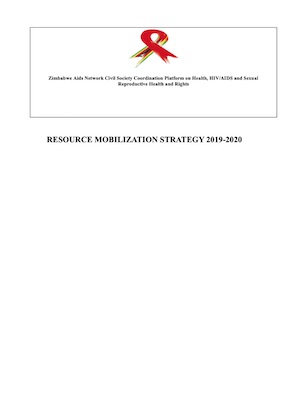Resource Mobilization
A critical success factor for the sustainability of HIV and Health CSOs is the ability to mobilize resources to respond to their clients needs and help mitigate any negative shifts in funding. This will contribute towards greater ownership and graduation away from donor funding. Resource mobilization also requires strong financial management, together with a clear business plans and proposals aligned to CSO Strategic Plans.
To maintain the quality and volume of their work CSOs have to continually find new sources of funds. The following are the most common approaches; i) reaching out to new donors with innovative fund-raising approaches; ii) redesigning program activities to include cost recovery components, whereby the beneficiaries or clients of the NGO pay part of program costs; iii) another alternative is for the CSO to make money through commercial ventures.
The fulfilment of ZAN’s mandate implies an obligation of meeting the costs of responding to the HIV epidemic and the expanded focus on broader health issues including SRHR programming. ZAN believes the international community, private and public entities still have an obligation to ensure continued commitment to health. The ZAN resource mobilization strategy is aligned with a continued focus on organizational changes for effectiveness and efficiency; in line with the last strategic plans and fresh mandates given to ZAN.
Resources
-
 ZAN Resource Mobilization Strategy Zimbabwe Aids Network Civil Society Resource Mobilization Strategy 2019-2020PDF 0.7 MB
ZAN Resource Mobilization Strategy Zimbabwe Aids Network Civil Society Resource Mobilization Strategy 2019-2020PDF 0.7 MB






